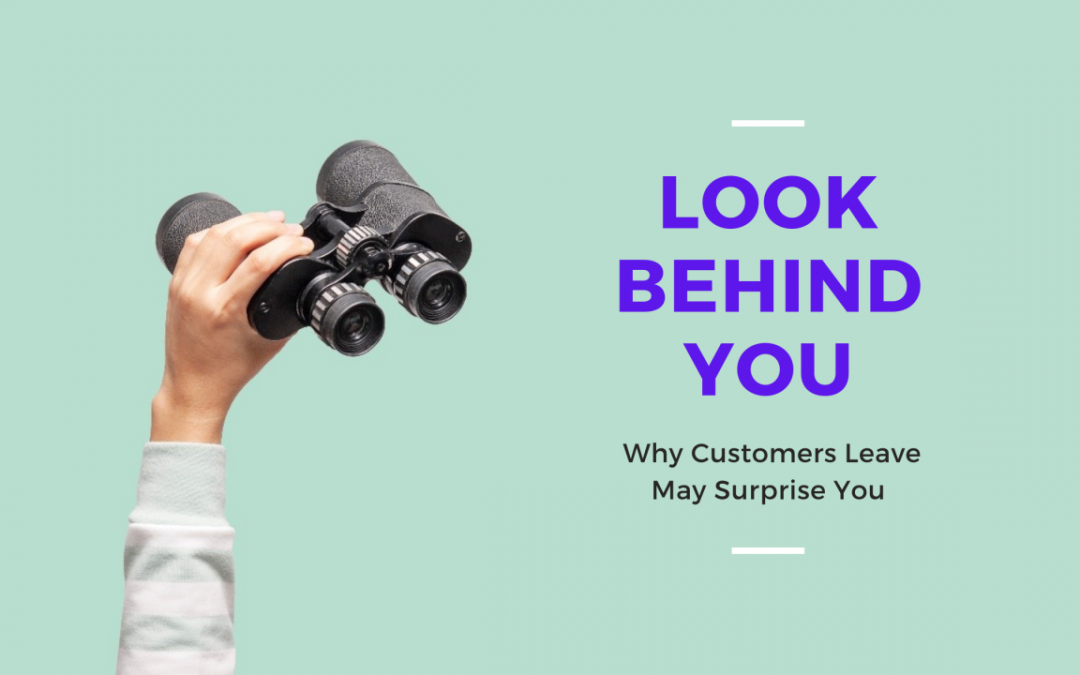Anyone who’s dabbled in outdoor photography has likely heard the phrase “look behind you” because we are always so focused on what’s in front of us that we fail to notice what’s behind us. In fact, if what’s behind you is a bear sneaking up on you, you’ll really want to be aware of that, right?
So many businesses we encounter are laser-focused on gaining market share, collecting new customers and “maximizing shareholder value” in order to make the balance sheet look good. We see it in how they measure their people. Get the deal. New revenue. Client complaint? Hand it off to “Customer Service”. So goes the mantra. But, do they know when, and more importantly, why, customers are leaving? Has anyone ever asked a customer who left, why they left?
I recently worked with a client who was searching for a new supplier to handle their mission critical operations. They had been with their current supplier for over ten years, but had become disillusioned with how they were being treated. The feedback I heard was “we just don’t feel valued anymore as a customer”. They reported being talked down to by the support group, and a general feeling of being disrespected at all levels of the organization.
A meeting with the supplier’s leadership team bore zero fruit because the culture of that supplier, from the top down, was “new revenue is king”, so a new supplier was selected. The winning supplier delighted the client with their culture, which is one of respect and patience. The chosen supplier didn’t badger the customer for “the close” but patiently waited while the client sorted through their own internal processes. After all, the incumbent supplier had been with the client for a very long time.
In most cases where the service or product is commoditized, and let’s face it, that describes a great many companies, the way a client feels makes all the difference. It’s that “thing you cannot teach” that sets many companies apart, and the smart ones hire to that. Culture begins at the top. When the customer is not just another shiny object to be added to the trophy case, but is treated as a living entity, the relationship is solid. Trust is born.
With everything being equal, a customer will always gravitate toward a vendor/supplier that makes them feel valued and important. And that feeling needs to last throughout the entire length of the customer/supplier relationship. To lose sight of that, by not “looking behind”, means we risk losing that precious relationship, never to be repaired.
So, don’t forget to “Look Behind You”. Important things are happening there.

